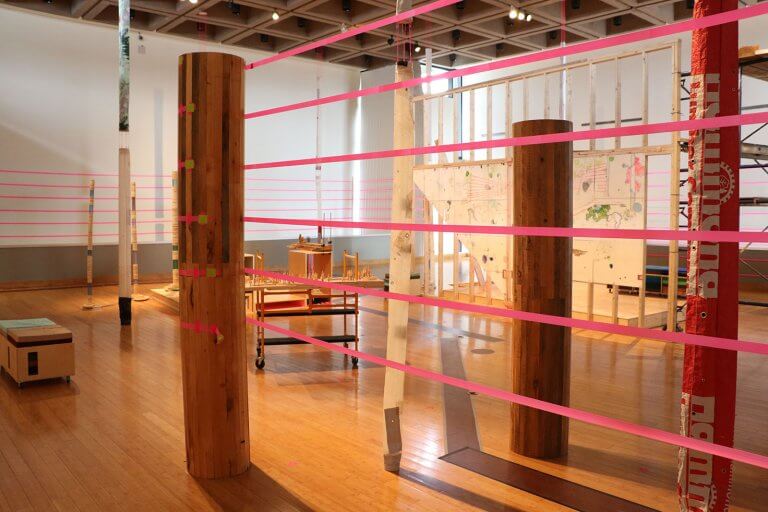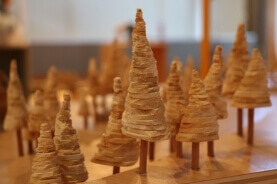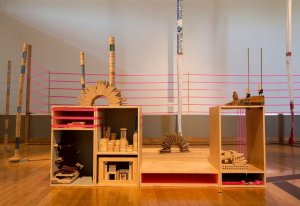
Leah Garnett: When One Space Meets Another


Based in Sackville, New Brunswick, where she teaches in the Department of Fine Arts at Mount Allison University, Leah Garnett drew upon her childhood experiences around construction sites and the woods of rural Maine to produce When One Space Meets Another, an installation that maps a passage from childhood exploration to artistic formation onto the site of a gallery.
The project began in 2012 in the forests of Maine, where Garnett transposed the plan of a room in the Owens Art Gallery onto a natural landscape. The room’s outlines delineated by pink construction tape, the artist marked a viewing path with planks. The planks, which appear in the current installation as duct-tape “drawings,” recall a past movement and suggest a way of navigating the gallery space. The artist’s journey from a Sackville gallery to the Maine woods to studio residencies in Ireland, is mapped onto the plan of the Confederation Centre Art Gallery: analogs of trees, furniture, pathways, walls systematically placed according to their locations in other sites, lines and areas of pink, green and brown pulling together disparate elements ranging from the literal (scaffolding to two by four stud wall construction) to abstract formal affinities. The installation brings together Garnett’s experiences of space in the natural landscape and the transparency of a site under construction; one can see and even pass through walls, and yet at the same time, read and measure spatial boundaries that will eventually become solid.
The process of imagining and enacting our place in the world through visualizing and building is at the heart of Garnett’s project. In exhibition form, the practical demands of construction are refracted through the playful eyes of the artist, and we are reminded that passage through space is anchored by what is already there, by what has been, and by a projection into an open future. We learn to navigate space as children, as we discover our own shifting position in relation to the things and visual cues around us. At least partly innocent about the uses of the earth, trees, walls, furniture, we approach the artistic process of imagining worlds, a process tightly focused on physical experience, and yet detached from everyday concerns. This fusion of focus and detachment is always partial. But half-remembered childhood sensation unmoored from purpose, and the free play of perceptions, drive Leah Garnett’s representations of space.
Pan Wendt, curator

